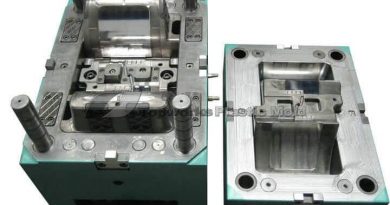Impact of professional labels on Food and Beverage Packaging
By now, we have been made fully aware that product packaging tremendously impacts brand awareness, equity, and sales. As the demand for natural items rises, the clean label trend is gaining steam due to greater transparency and an increased focus on pure authenticity.
However, with the stiff competition, even bold, interesting prime labels may not be enough to attract shoppers these days. Let’s see what clean labels are, why food and beverage companies should use them, and their effects on the industry as a whole.
What Exactly are “Clean Labels”?
Simply put, clean labels are food products that are more straightforward and have fewer ingredients. It means that other than just being truthful about what you are selling, you care about your customers by offering them natural products that are not highly processed.
Although clean labels are not new in the scene, they did not gain traction until recently. These food and beverage labels are associated with the clean eating movement. However, they are most commonly found in all-natural goods. And do not contain any artificial preservatives or flavors.
Impact of Professional Labels on the Food and Beverage Industry
This kind of food and beverage labeling is rapid. The gaining popularity, with more products in the market being non-processed. This trend has led to more companies vowing to remove artificial ingredients from food products, winning customers’ hearts.
It is important to note that clean label ingredients and packaging. They have less to do with scientific evidence or rules than client perception. There is no legal definition of clean label ingredients and product packaging, and organizations. They are yet to agree on whether certain things should be included or not. Because anyone can claim to be a clean label. The description naturally differs from brand to brand and industry to industry.
What Impact Do Clean Labels Have on Customers?
Every parent wants their children to consume food that is safe, nutritious, and healthy. Parents want their children to eat natural and nutritious food. However, it is not only for children.
Adults, too, want complete, clean diets that are free of artificial or extra substances. This clean label movement has swept through the industry, following in the footsteps of comparable fads such as all-natural, non-GMO, organic, and so on.
Businesses striving to create a more holistic branded experience for customers should always start with professional custom labels that look earthy and organic to set the atmosphere for the right messaging.
It is a common practice among buyers to read a label before making buying decisions. According to research, consumers always want to know what is in their foods and beverages.
Don’t get tripped up by the lack of a precise definition for clean labels. Your customers should be the main drivers for your concept of clean label ingredients. What they believe is best for their children and families will influence their purchasing decisions.
Industry Association (formerly Food Marketing Institute) that companies. They should offer enough information to help consumers make independent decisions rather than exaggerate and fail to live up to the buyers’ expectations. Dosage-dependent health offerings with specific active compounds like medical cannabis need compliant bags and professional labels to ensure products are even launched to market.
Undeniably, marketers should seek to connect to the health-conscious, repeat client because of the natural ingredients used in their products, rather than use a trendy new word to entice an impulse, one-time purchase.




